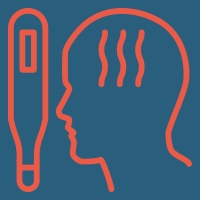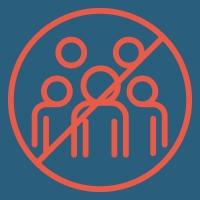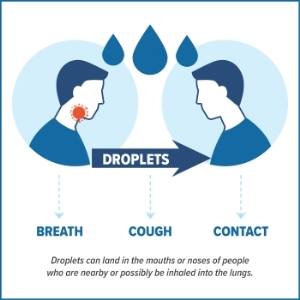COVID-19 (Novel Coronavirus) - Latest updates for our served communities
 Keeping the workplace safe
Keeping the workplace safe
Encourage your employees to…
Practice good hygiene
- Stop handshaking use other noncontact methods of greeting
- Clean hands at the door and schedule regular hand washing reminders by email
- Create habits and reminders to avoid touching their faces and cover coughs and sneezes
- Disinfect surfaces like doorknobs, tables, desks, and handrails regularly
- Increase ventilation by opening windows or adjusting air conditioning
Be careful with meetings and travel
- Use videoconferencing for meetings when possible
- When not possible, hold meetings in open, well ventilated spaces
- Consider adjusting or postponing large meetings or gatherings
- Assess the risks of business travel
Handle food carefully
- Limit food sharing
- Strengthen health screening for cafeteria staff and their close contacts
- Ensure cafeteria staff and their close contacts practice strict hygiene
Stay home if…
- They are feeling sick
- They have a sick family member in their home
 Keeping the school safe
Keeping the school safe
Encourage your faculty, staff, and students to…
Practice good hygiene
- Stop handshaking use other noncontact methods of greeting
- Clean hands at the door and at regular intervals
- Create habits and reminders to avoid touching their faces and cover coughs and sneezes
- Disinfect surfaces like doorknobs, tables, desks, and handrails regularly
- Increase ventilation by opening windows or adjusting air conditioning
Consider rearranging large activities and gatherings
- Consider adjusting or postponing gatherings that mix between classes and grades
- Adjust after school arrangements to avoid mixing between classes and grades
- When possible, hold classes outdoors or in open, well ventilated spaces
 Keeping the home safe
Keeping the home safe
Encourage your family members to…
All households
- Clean hands at the door and at regular intervals
- Create habits and reminders to avoid touching their face and cover coughs and sneezes
- Disinfect surfaces like doorknobs, tables, and handrails regularly
- Increase ventilation by opening windows or adjusting air conditioning
Households with vulnerable seniors or those with significant
underlying conditions.
Significant underlying conditions include heart, lung, kidney disease; diabetes;
and conditions that suppress the immune system
- Have the healthy people in the household conduct themselves as if they were a significant risk to the person with underlying conditions. For example, wash hands frequently before interacting with the person, such as by feeding or caring for the person
- If possible, provide a protected space for vulnerable household members
- Ensure all utensils and surfaces are cleaned regularly
Households with sick family members
- Give sick members their own room if possible, and keep the door closed
- Have only one family member care for them
- Consider providing additional protections or more intensive care for household members over 65 years old or with underlying conditions
 Keeping commercial establishments safe
Keeping commercial establishments safe
Encourage your employees and customers to…
Practice good hygiene
- Stop handshaking use other noncontact methods of greeting
- Clean hands at the door, and schedule regular hand washing reminders by email
- Promote tap and pay to limit handling of cash
- Disinfect surfaces like doorknobs, tables, desks, and handrails regularly
- Increase ventilation by opening windows or adjusting air conditioning
Avoid crowding
- Use booking and scheduling to stagger customer flow
- Use online transactions where possible
- Consider limiting attendance at larger gatherings
For transportation businesses, taxis, and ride shares
- Keep windows open when possible
- Increase ventilation
- Regularly disinfect surfaces
Last updated: March 11, 2020, 4:00PM
________________________________________________________________________________
Below is an announcement directly from the Adams County Health Department.
We know that COVID-19 (novel coronavirus) is in our communities, and likely above the number of cases we already know. Most cases of COVID-19 are mild to moderate and most people who get this virus will recover and be just fine, however, it does have a higher death rate than seasonal flu. The elderly, anyone with reduced immune system or other serious health problems such as diabetes and heart disease will be at a higher risk of more severe illness.
We will not be able to stop COVID-19 completely, but there are things that we can do as a community to reduce the number of cases and the impact it has on Adams County. Adams County Health Department is recommending, but not requiring, the following steps to minimize public contact and spread of novel coronavirus:
High Risk People: People at higher risk of severe illness should stay home and away from large groups of people as much as possible, including public places with a lot of people and large gatherings where there will be close contact with others. People at higher risk include:
- People 60 and older
- People with underlying health conditions including heart disease, respiratory illness and diabetes
- People who have weakened immune systems
- People who are pregnant
Workplace: Workplaces should enact measures that allow people who can work from home to do so. Taking these measures can help reduce the number of workers who come into contact with COVID-19 and help minimize absenteeism due to illness.
Events: If you can feasibly avoid bringing large groups of people together, consider postponing events and gatherings. This recommendation is for both private and public events.
If you can’t avoid bringing groups of people together:
- Urge anyone who is sick to not attend.
- Encourage those who are at higher risk for coronavirus to not attend.
- Try to find ways to give people more physical space so that they aren’t in close contact as much as possible.
- Encourage attendees to maintain good healthy habits, such as frequent hand washing.
- Clean surfaces frequently. Standard cleaning products are effective against COVID-19.
Schools: ACHD is not recommending closing schools and childcare at this time. If there is a confirmed case of COVID-19, ACHD will work with the school or facility to determine the best measures including potential closure. Closure is not recommended now mainly because current evidence indicates young people have a far lower risk of serious illness from this virus than other people. Parents of children with reduced immune system or with chronic diseases should discuss with their provider the possibility of keeping the child out of school or childcare.
Healthcare: Generally, avoid medical settings unless necessary. Healthcare facilities are overwhelmed. If you are feeling sick call your doctor’s office first before going in. Even if you are not ill, avoid visiting hospitals, long term care facilities or nursing homes to the extent possible. If you do need to visit one of these facilities limit your time there and keep 6 feet away from other patients. Do not go to the emergency room unless essential. Emergency rooms need to be able to serve those with the most critical needs. If you have symptoms like cough, fever, or other respiratory problems, contact your regular doctor first.
Everybody Can Do Something! Every person can make a difference by doing the following:
- Avoid going out if you feel sick.
- Wash hands often and vigorously with soap and water for at least 20 seconds. If soap and water is not available, use a hand sanitizer with at least 60% alcohol, saturating the skin surface and rubbing for at least 20 seconds.
- Avoid touching your eyes, nose or mouth with unwashed hands.
- Avoid contact with people who are sick.
- Stay home when you are sick and avoid close contact (less than 6 feet away) with others.
- If you have a cold or cough and need to see a provider, always call first to be sure they know you are coming so their staff can take appropriate precautions.
- Cover your mouth and nose with a tissue or sleeve when coughing or sneezing.
- Don’t shake hands, bump elbows.
- Use sanitizing wipes or solutions (normal household products work) on frequently touched surfaces and objects at home and at work.
- Take good care of yourself to stay healthy, including adequate sleep and good nutrition.
Last updated: March 6, 2020, 4:00PM
________________________________________________________________________________
CBHA operates clinics Adams, Franklin, and Grant counties. For the most up to date information from health officers in each county, please follow them at (then include their Facebook links).
Also, the Washington Department of Health reports daily (around 11 a.m.) on the changing situation across the state. Today, they reported one confirmed case in Grant County, which as of yesterday had been classified as presumptive positive.
https://www.doh.wa.gov/Emergencies/Coronavirus
Thank you to all of the health care workers throughout our communities, our state, and around the world who are working tirelessly under very demanding conditions.
Last updated: March 5, 2020, 3:05PM
________________________________________________________________________________
Here’s one more step we’re taking to keep our patients, community, and providers as safe as possible from the novel coronavirus. If you have a dental appointment or eye exam, and you’re experiencing any symptoms of an upper respiratory infection (cough, sneezing, runny nose, sore throat), please reschedule those appointments at least two weeks after the onset of your symptoms.
The novel coronavirus can spread as infected patients cough, sneeze, or simply breathe when they’re close to others. Dental and eye care professionals work within inches of patients, making the spread of infections more likely. Even if it’s just a cold or the flu, it makes sense to reduce the risk of transmission.
Helping us keep our providers healthy makes it easier for us to keep our clinics as fully staffed as possible, so we can take care of everyone’s dental and eye care needs. And keeping our clinics as safe as possible is the best thing we can all do for each other.
Dental and eye care patients with respiratory infection symptoms who show up for appointments will be rescheduled by clinic staff. So if you’re feeling sick, reschedule those appointments and take good care of yourself. We’ll see you and take good care of you as soon as you bounce back!
Last updated: March 5, 2020, 11:00AM
________________________________________________________________________________
Are you just getting up to speed on the coronavirus? Or simply looking for an authoritative source of information? Here are some short videos from the U.S. Centers for Disease Control and Prevention (CDC).
https://www.cdc.gov/coronavirus/2019-ncov/communication/videos.html
Last updated: March 5, 2020, 10:30AM
________________________________________________________________________________
What is novel coronavirus? Novel coronavirus (COVID-19) is a new virus that has the potential to cause severe illness and pneumonia in some people and mild symptoms in others.
Is it spreading in my community? At this time, there are no known cases in Adams, Franklin, or Grant Counties. It remains unknown if there are any undiagnosed cases. We will provide updates as quickly as possible as more information becomes available.

How would I catch it? Currently, health experts believe it spreads:
- by respiratory droplets produced when an infected person coughs or sneezes.
- between people who are in close contact with one another (within about 6 feet).
How severe is it? Reported cases have ranged from mild illness (like a common cold) to severe pneumonia that requires hospitalization.
The number of people reported to have the virus, and the number of deaths it has caused, change hourly, but cases and deaths have been reported in Washington. So far, deaths have been mainly among Seattle-area older adults who had other health conditions.
Regular updates are shared by the US Centers for Disease Control and Prevention (CDC), at https://www.cdc.gov/coronavirus/2019-ncov/index.html, and Washington Department of Health https://www.doh.wa.gov/Emergencies/Coronavirus
How can I tell if I have caught it, or if I just have a cold or the flu? People who have been diagnosed with novel coronavirus have reported symptoms that may appear in as few as 2 days or as long as 14 days after exposure to the virus:

If you have symptoms like cough, fever, or other respiratory problems, contact your doctor or provider. If you’re over 60 and you have underlying conditions like diabetes, heart disease, and lung disease, come up with a plan with your doctor to identify your health risks for coronavirus and how to manage symptoms. Contact your provider right away if you do have symptoms.
How can I get tested, and how soon would results be known?
At this time, testing for coronavirus is limited to people meeting criteria determined by the CDC and Washington Department of Health. As mentioned above, not everyone who has a fever, cough, or difficulty breathing has coronavirus or needs to be tested. Testing for coronavirus is performed by a state approved lab.
How can I protect myself or others from catching it? Take steps to reduce the spread of novel coronavirus, especially to protect those who are more vulnerable:
- wash hands often with soap and water. If not available, use hand sanitizer.
- avoid touching your eyes, nose, or mouth.
- avoid contact with people who are sick.
- stay home while you are sick and avoid close contact with others.
- keep your children home from school if they are sick.
- cover your mouth/nose with a tissue or sleeve when coughing or sneezing.
- avoid large group events when possible.
Currently, there are no vaccines available to prevent novel coronavirus. If you are traveling overseas, follow the CDC’s guidance: wwwnc.cdc.gov/travel.
What will happen if I catch it?
Most people will recover on their own by drinking plenty of fluids, resting, and taking pain and fever medications. However, some cases develop pneumonia and require medical care or hospitalization. There are no medications that cure the coronavirus.
What is CBHA doing?
- CBHA is providing information daily to the community using all of our communication channels. We rely only on expert sources such as the US Centers for Disease Control and Prevention, the Washington State Department of Health, and local health departments.
- We are following strict patient protocols for anyone who has come into contact with someone affected by the virus, or anyone who suspects they have become ill with the virus.
- We are maintaining close contact with regional health authorities so that we act upon the very latest information and science available.
Last updated: March 3, 2020, 4:30PM
For more information:
https://www.cdc.gov/coronavirus/2019-ncov/communication/videos.html
https://www.cdc.gov/coronavirus/2019-ncov/index.html
https://www.doh.wa.gov/Emergencies/Coronavirus
https://www.kingcounty.gov/depts/health/communicable-diseases/disease-control/novel-coronavirus.aspx
https://www.bfhd.wa.gov/news/what_s_new/novel_coronavirus_in_washington_state
https://www.facebook.com/Benton-Franklin-Health-District-1531167447187327/
@bfhd
https://www.facebook.com/GCHD.WA/
@GCHD_WA